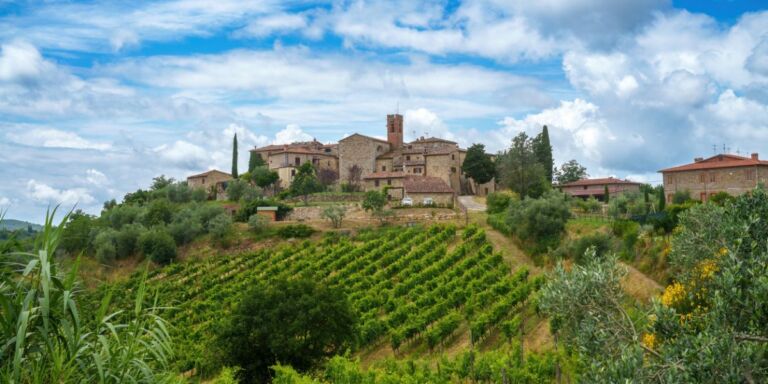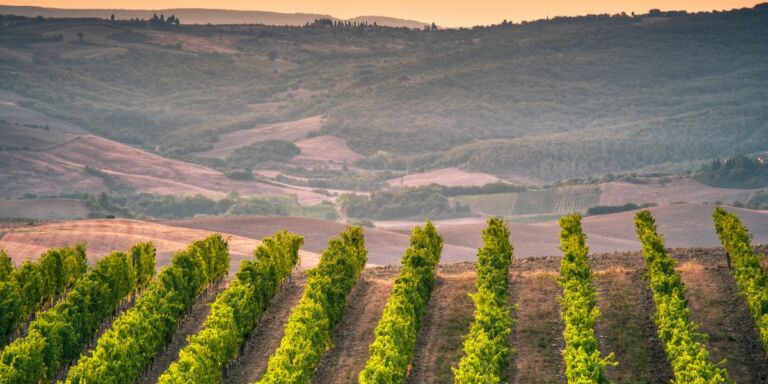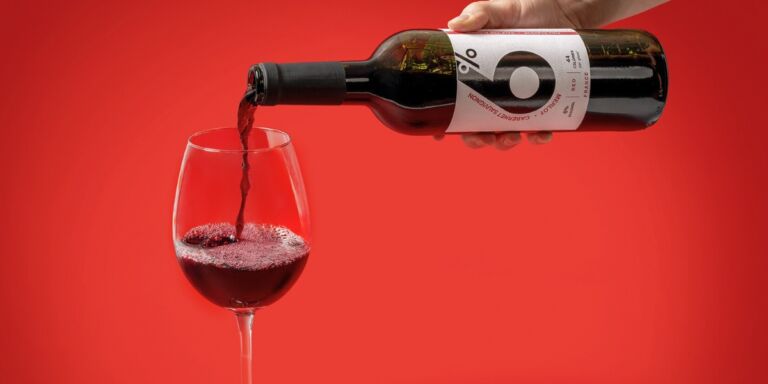Once upon a time, the joke was on English wine. The mere mention of it prompted a patronising smile, or from kinder souls, perhaps a pitying tilt of the head. The Germanic grape varieties, with suitably Teutonic names, seemed slightly alien and the raging acidity was often sufficient to strip paint, let alone enamel.
Although already an avid enthusiast, I was yet to enter the world of wine criticism at this point. I was the boss of Britain’s most popular TV morning programme, BBC Breakfast. We had a slightly cumbersome commitment to cover business news and were regularly asked to consider features on the rise of English wine.
To my shame, I can remember dismissing its news value and suggesting instead that we do what we usually did with anything vaguely frivolous that might look nice: send Carol Kirkwood along to present the weather. So, in my era at least, Britain’s bucolic vineyards had a cheering visit from the woman whose personality could outshine a frost candle, but the serious emerging success story went largely untold.
Ranked against other BBC scandals, this particular miss is unlikely to trigger any resignations from The National Gallery, but it is now obvious that the business unit was on to something – and I was not.

A decade and one midlife crisis later, earlier this month I found myself judging some of the finest wines that Britain has to offer at the International Wine & Spirit Competition, and it’s fair to say that there is nothing remotely frivolous about the quiet revolution that has taken place.
Alongside fellow judges, former Michelin-starred chef Roger Jones and Corney & Barrow director Rebecca Palmer, I found myself in the midst of a modern-day gold rush, with a gobsmacking haul of four top medals in one flight of English wine alone.
For those unfamiliar with the rigorous process, our verdicts are presided over by a member of the judging committee, usually a Master of Wine, who – like us – is tasting blind. Give out a golden gong and you’re pretty much guaranteed a visit within minutes to check that you haven’t either gone native, or nuts. We wondered whether our gilded flight might prompt a heated debate, or even a dreaded correction – euphemistically referred to as an “override” – but no, John Hoskins MW tasted each of them, nodding approvingly as he went.
Across two days of tasting, English sparkling wines won a record eight Gold medals in total: the trailblazing Nyetimber for its quintessential Blanc de Blancs in magnum and fabled Tillington Single Vineyard, both from 2013. A new name for me, Court Garden, also scooped the double for its 2014 Ditchling Quartet Brut and Blanc de Noirs Extra Dry.
Two trusty favourites of mine, Henners Vineyard and Wiston Estate were awarded Gold medals, as was Dorset’s English Oak Vineyard and last year’s IWSC trophy winner, Langham Wine Estate, for its 2017 Brut Rosé.
The current success story, for sparkling at least, will not come as a surprise to those who have followed the fortunes of English wine for some time. Veteran personality and polymath Oz Clarke, for example, who last year devoted a whole book to the subject. Beyond banging the drum, which he’s been doing for at least a decade, he makes the salient point that English wines offer something new and completely different.
English sparkling wine is a fresh taste sensation, just as Marlborough Sauvignon Blanc was when it took us by storm in the 1990s
It is a fresh taste sensation, just as Marlborough Sauvignon Blanc was when it took us by storm in the 1990s. We need to move on from favourable comparisons with Champagne and accept that we are tasting something special in its own right.
In fairness, our indigenous winemakers have been making this point for a while. Black Chalk’s Jacob Leadley, a Trophy winner at the IWSC last year, was a recent guest on my podcast, The Drinking Hour, on Food FM. He has grown weary of the patronising parallels and the hackneyed notion that our terroir is a slightly cooler, chalkier extension of Champagne that conveniently pops up just beyond the white cliffs of Dover. Leadley would rather we focus on celebrating the bright purity of fruit and fresh acidity that defines the English sparkling-wine style.

Just as I was a bit late to the party on English sparkling, until recently I needed some convincing on our homegrown still wines, but it is clear that they too are gaining ground, despite the best efforts of the British weather. A recent conversation with Chris Wilson, founder of Gutter & Stars, Cambridge’s first urban winery, housed in a former windmill – a moulin of vin, you might say – convinced me of the merits of Essex’s Crouch Valley. He likens it to Napa and he’s not joking.
It’s so exciting to witness the British wine map being drawn before our eyes. Celebration has been in short supply of late, but here’s something to which we can finally raise a toast – even if took me a while to realise it.
What David has been drinking…
- A wet, windy week in the West Country prompted a quick stop at Camel Valley, where Bob and Annie Lindo, together with son Sam, have defied the odds to make award-winning wines. I lapped up their bright-fruited biscuity Brut Rosé.
- Chenin Blanc is still underrated, so it was a pleasure to “Zoom” in on Loire pioneer Jacky Blot and his Domaine de la Taille aux Loups wines from Montlouis. Fresh, taught and thrilling, his Remus 2019 offers something new with every sip.
- Kevin Judd created premium Marlborough Sauvignon Blanc during his time at Cloudy Bay, but he’s now doing his bit to redefine the genre, with his Greywacke Wild Sauvignon. Nuanced, textural and delicious.

David Kermode is a journalist and broadcaster, with two decades of experience across TV, radio and print media, and a lifelong love of wine and spirits.







